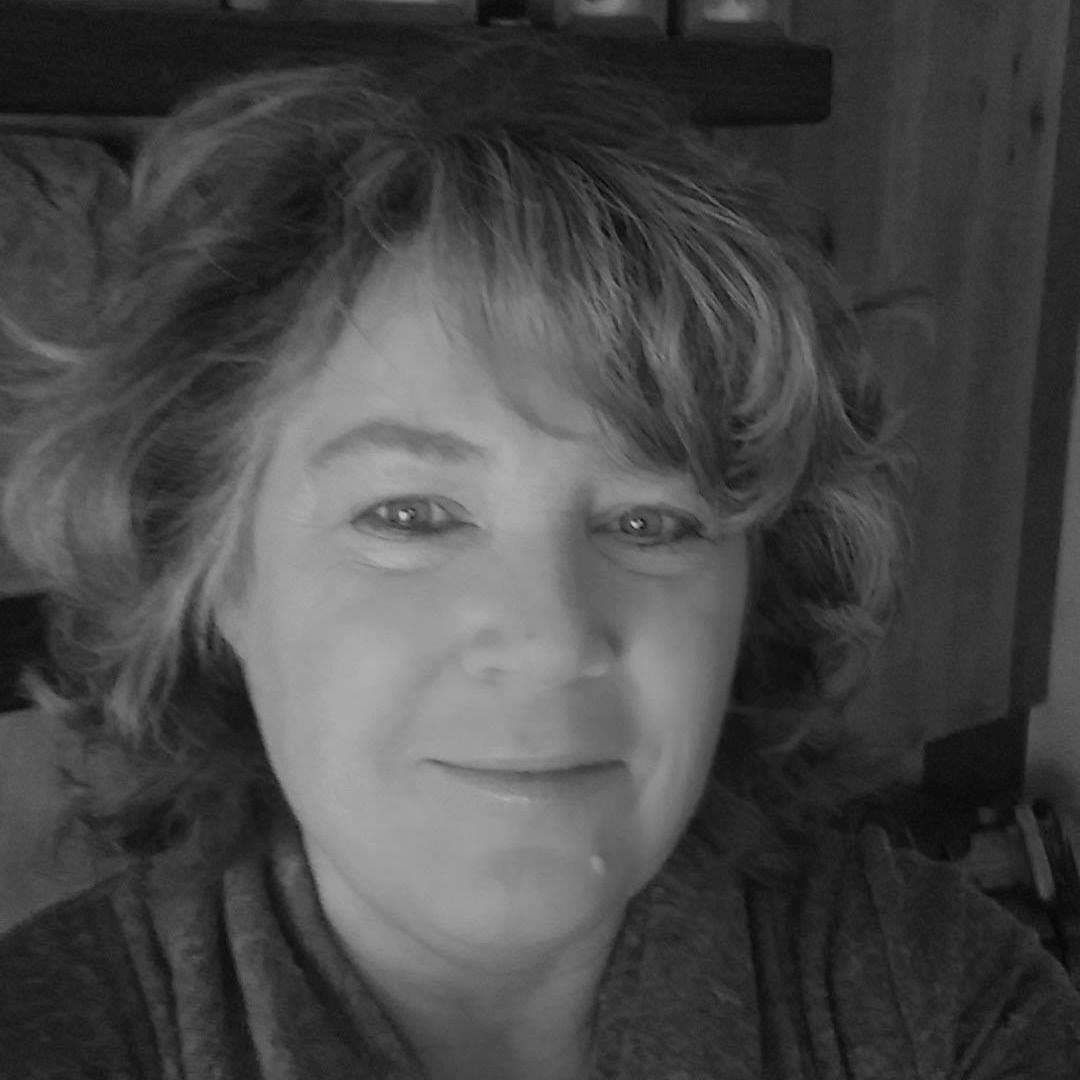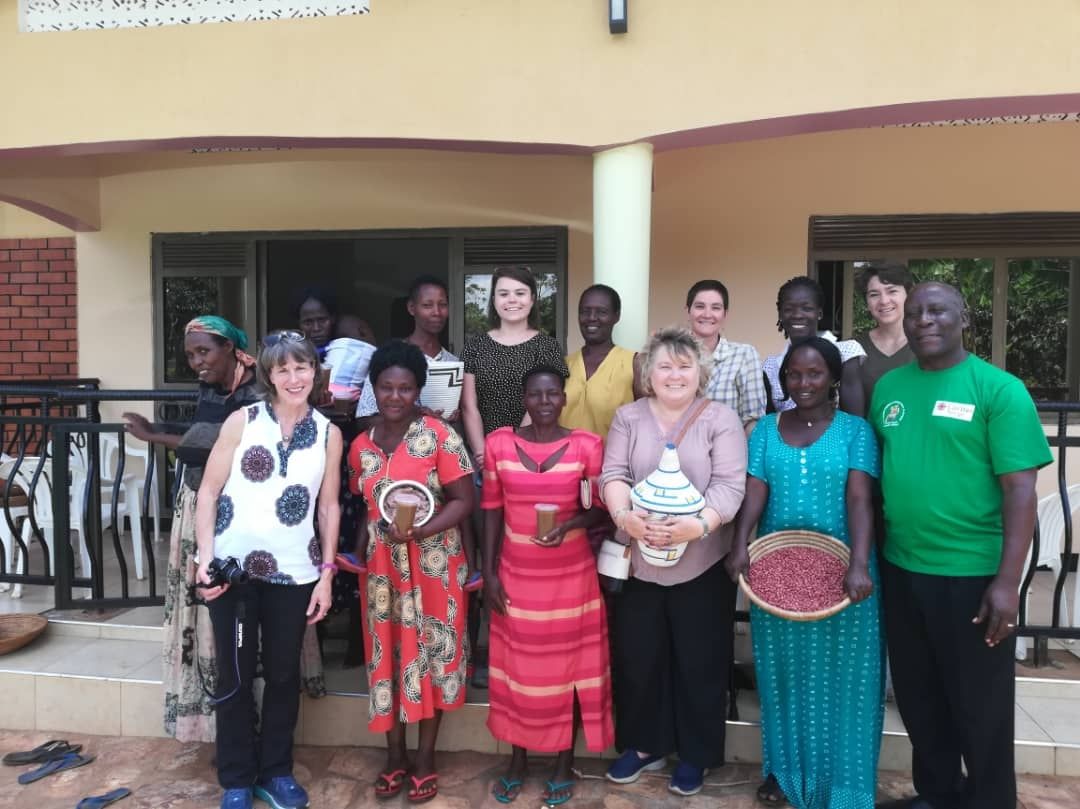A humanitarian determined to understand how demand for food and agriculture affects rural life, particularly for women, Wynne Wright has contributed to internationalizing MSU’s campus and programs, positioning her as the perfect recipient of the Special Recognition Award for Promoting International Understanding. 
Wright is an associate professor in the Departments of Community Sustainability and Sociology at Michigan State University. She is a co-principal investigator in the Professional Fellows Program—Advancing Women Agribusiness Entrepreneurs and Innovators hosted at Michigan State University, helping connect Ugandan, Tanzanian and Kenyan agribusiness professionals and entrepreneurs with their counterparts in Michigan for knowledge exchange and capacity building.
Her research is in the area of food politics, and women and agriculture, motivated by the desire to use social science methods to elevate and integrate the voices of marginalized rural people—especially farm women—so that they may drive the forces of change in their lives. Wright is also a visiting lecturer at the University of Toulouse, el Purpan in Toulouse, France. She lives, eats and farms lavender in Lansing and Alma.
There is one person who's been a really big impact on my life in this regard—my grandmother. I'm descended from a long line of farm women, and it was many years before I understood that one could take up a social scientific lens and apply it to the study of women in agriculture and the study of rural women's lives. I noticed how hard my grandmother worked, and the lack of acknowledgement given to her contribution to the rural economy into our farm family her entire life. That drove me to have an interest in rural women. It started basically by watching my grandmother and thinking about what her life was like and what so many other women's lives were like who had filled that place in society. And so over the years, I was able to turn that into an international interest in empowering rural women.
How did it turn into an international experience? Much of the work that I did in my earlier career was devoted to American women. But then opportunities emerged. Most of the farm women in the world are outside of the United States and almost half of the world's farmers are female. So if I really wanted to continue to study these issues, particularly of marginalized rural women, it was an obvious next step to look outside the U.S. borders. Not that rural women cannot be marginalized here in the United States, but certainly it is in a different way in other parts of the world.
First and foremost, the objective of the project is women's empowerment. We use agriculture and agro-entrepreneurship as the vehicle, first to bring attention to the issue of rural women's livelihoods. But at the same time, because women make up such a large proportion of the agricultural community, it seemed like an obvious place to start improving women's lives, particularly in East Africa.
The program focuses on Tanzania, Kenya and Uganda, where women make up a fairly large percentage of the farming population. What we are doing is to take some of the resources that MSU has that could be used or married with some of the needs or gaps that East African women are facing. We create a partnership between the team at MSU and the Fellows. We really think of this program as a form of reciprocity and a collaboration—we also learn from the fellows. East African women come here for a five-week training program where they are mentored by other women (or sometimes a man) involved in the agriculture industry in Michigan. And then MSU faculty and the mentors go to these countries in East Africa to visit the Fellows and to see the progress they make. One of the more rewarding things I find is each time we take the mentors to East Africa to see the progress these women have made in their own agribusiness, the mentors are moved. It is very motivational to see how the little bit of resources we give them help create a wealth of opportunity that we were all very impressed with.
It has changed. My first opportunity to live outside of the United States was in Hungary. I was a Civic Education Fellow for the Soros Foundation. This was right when I was in graduate school finishing my dissertation, and I was hired to go and to teach social science theory and methods. This was in the late ‘90s when communism had just fallen. Eastern Europe was emerging and it was really westward focused. There were lots of opportunities for Western-trained academics, because it was believed that Eastern Europe needed to get up-to-speed with Western methods.
I was hired by the Soros Foundation for a specific purpose and taught in Budapest for a year, and I fell into this trap of thinking that this is what academics do abroad. They disseminate knowledge. They're the “sage on the stage.” Sometimes people like to use this phrase for a one-way model of engagement. Since then, I really changed my thinking. The Professional Fellows Program is a really good example and other work that I've done since has made me see how an approach like collaboration—a two-way street, and more reciprocal rather than just sharing knowledge—is much more valuable. This goes to the point that sometimes I forget that I’m not there just to learn, but I have a responsibility to share. And that the best outcomes come from those sorts of pairings, rather than the “sage on the stage” approach to dissemination.

This is a really good question and a very important one. First, it is a form of consciousness raising. I think it's really important for students to be exposed to other parts of the world so that they understand their relative privilege as citizens of the global north. But also, it's important for them to appreciate the social and historical context in which their lives were created. And I think one of the best ways to do this is through comparative work to encourage students to think about livelihoods that might be on the surface quite different. But in reality, they'll see the similarities in their lives, whether they're doing the research project in class, whether they're meeting peers from around the world, here on campus, or doing study abroad, or what have you. All the students that I've ever interacted with in this regard say these kinds of interactions are life-changing, and they certainly were for me.
There are a lot of reasons for internationalizing the work on agriculture and I could probably go on and on about this one for days. But one of the first things that's useful to remember is our interconnectivity as a society. What happens in one area of the world certainly has an impact on the other. Increasingly, much of our food comes from other parts of the world and it's being produced by people we don't know—people whose livelihoods may be quite different from ours and people who may not enjoy these privileges and opportunities we have in this country. And the fact that we're connected through food is a very intimate sort of relationship.
The other thing that I would add is that, increasingly, our global food system is a global supply chain and we all occupy different locations in the chain. Consumers may be located in the global north, but the producers of that food might be in the global south. That links us together, links our lives, and of course our opportunities together. More and more people want to know where their food comes from. Folks who are at one end, particularly the consumption end of supply chains, want to know what lives are like for those in the production and supply parts of the chains and are demanding that they have fair opportunities. An example of this is the fair trade movement; consumers want to see their money being spent where producers were treated fairly and are given a living wage in the process. Because of the increasing globalization of the food system, we now know that producers aren't. For the average consumer, these are relatively recent realizations. Twenty or 30 years ago, the typical citizen didn't know that their food was often being produced by people who do not make a living wage.
The Special Recognition Award is made to MSU faculty and staff who have contributed to internationalizing the campus and MSU programs globally, but who do not meet the criteria for other International Studies and Programs awards.
Previous recipients of this award have included faculty and staff members recognized for leadership in the Third International Mathematics and Science Study, academic accomplishment and efforts to increase internationalization through the medium of African dance, outstanding contributions to Global Festival, a central role in assisting international officers with technology changes related to the MSU Student and Exchange Visitor Information System (SEVIS), leadership of groups of students and health professionals on medical missions in Mexico, and efforts to enhance MSU's world standing and reputation through the media. The award is presented as warranted and is not necessarily given every year.